How to make the strongest Japanese team in history: adhere to the long-term strategy + meticulous preparation, and the European project is the foundation
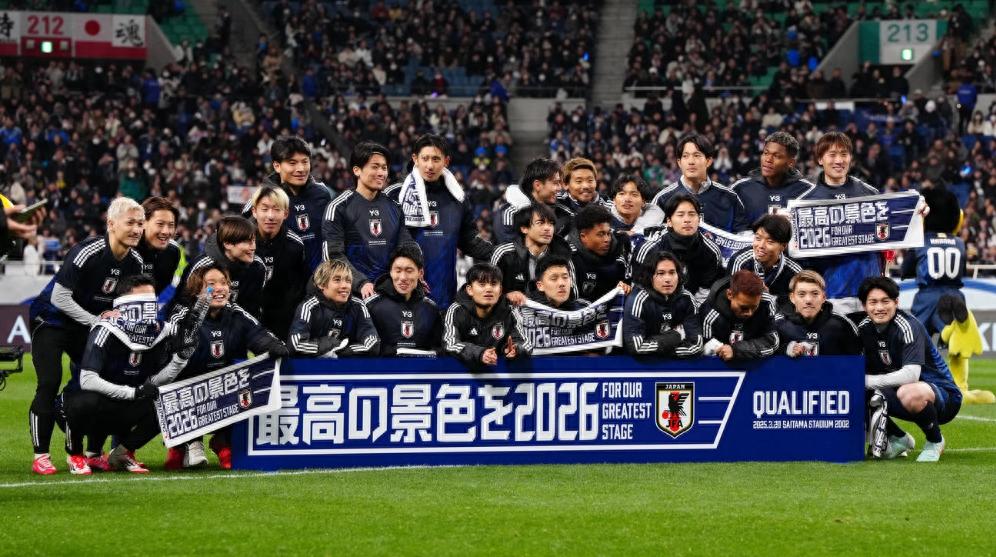
The reporter reported coldly Locked in the right to qualify for the World Cup three rounds in advance, which is the fastest record in the history of the Japanese team in the world preliminaries. The round of 18 has the most goals scored (24) and conceded the fewest goals (2) in 7 rounds, and it has participated in 8 consecutive World Cups. There are many reasons for the success of this Japanese team, but in essence, it is inseparable from the Japanese Football Association's long-term World Cup development strategy, the team's thorough preparation, and the solid and large number of players in Europe as the foundation.

Talking about why the Japanese team qualified for the third round ahead of schedule, Kozo Tajima, former president of the Japanese Football Association, revealed the secret. In the last World Preliminary Round of 12, the Japanese team lost to Oman and Saudi Arabia in the first three games, and narrowly defeated Australia in the fourth game before getting out of the trough. Although he qualified as he wished, there were still voices in Japan to replace Mori Hoichi. However, with Moriyasu and his team defeating Germany and Spain in the 2022 World Cup to enter the round of 16, and losing to Croatia on penalties in the 1/8 finals, Kozo Tajima made up his mind to keep Mori Hoichi.
At that time, the Japanese Football Association also had other options such as Argentine coach Bielsa, but Kozo Tajima believed that with the increase in players in Europe, the national team's pre-game training time was limited, and there was a need for coaches who were familiar with both Japanese players and European football.
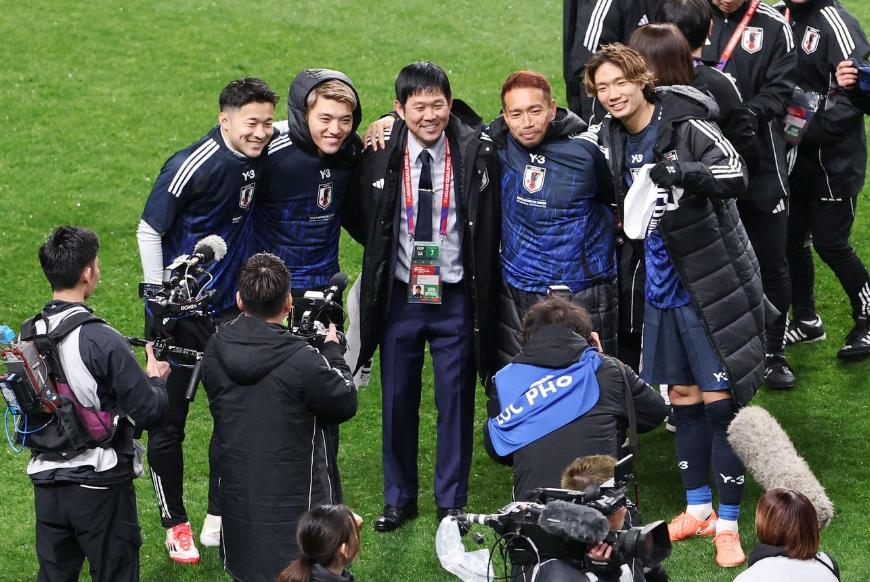
Mori learned the lessons of the 2022 World Preliminary Round of 12 and prepared exceptionally well, which led to a record result in the round of 18. It is reported. Mori will inspect the players on a large scale every time he trains, and will also communicate one-on-one with the unselected players. Masakuni Yamamoto, who is in charge of national team affairs at the Japan Football Association, said that Mori always has lunch with the players and observes the players' emotions and communicates in a timely manner.
As early as March 2023, when he first trained for the first time, Mori Boichi put forward the goal of "World Cup top 8". The players' response was to strive to "win every game", and this "winner-winning mentality" gave the Japanese team unprecedented success in team history. Since the qualifiers, the Japanese team has set their sights on the "World Cup Top 8" or even winning the championship, and of course, the qualifiers are not routine, but the only way to build confidence through victory.
After qualifying, the entire Japanese team unfurled a prepared "Highest View, 2026" banner, which was enough to show their height.

The success of Japanese football lies in the "Road to Japan" World Cup strategy that the Japan Football Association has been promoting since 2006, from youth training, J League, encouraging players to stay abroad to the construction of the national team, in accordance with the strategic phased plan in all aspects. As early as when the Japanese Football Association decided on the national Olympic coach for the Tokyo Olympics, it believed that it was best for the national team coach to ensure generational success. Eight years ago, Mori had his eyes on this as soon as he took office, and this round of 18 finally paid off.
This Japanese team, which is known as the strongest team in history, has the biggest advantage of a large number of foreign players. This season, more than 120 Japanese players have played in major European leagues, and this time the 27-man squad, 22 of them are in the foreign country, and 16 of the midfielders are all playing in Europe, of which 15 are playing in the top five leagues, twice as many as before the Qatar World Cup.
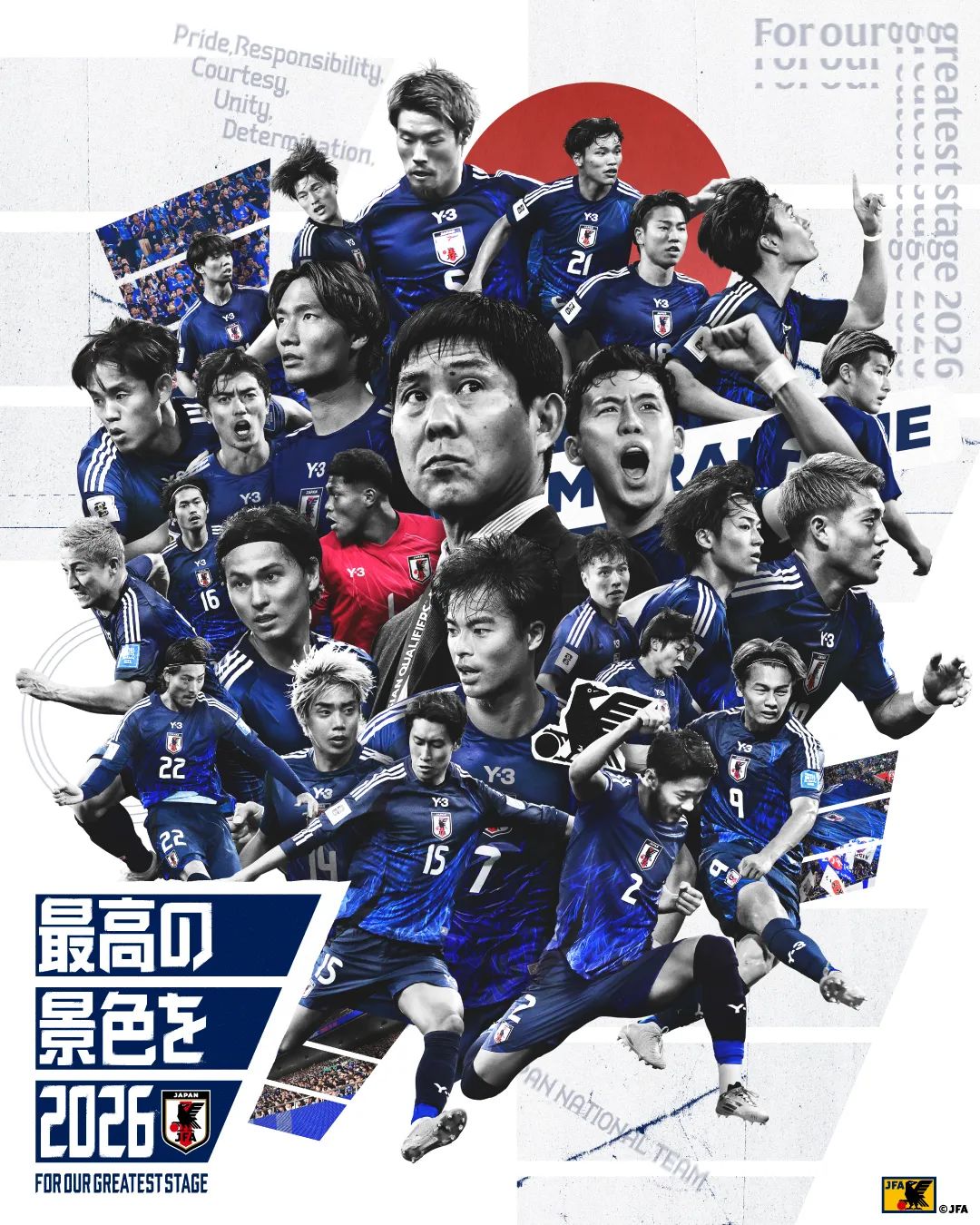
According to statistics, there are 23 Japanese players playing in the five major leagues, and together with the five major league sub-leagues and the five second-rate leagues of the Portuguese Super League, the Eredivisie, the Belgian League, the Turkish Super League and the Soviet Super League, there are as many as 69 Japanese players, which is enough to form 3 complete Japanese teams.
In October 2020, the Japan Football Association (JFA) set up a European base in Düsseldorf, Germany, to promote its strategy of traveling to Europe. Naoki Tsumura, the head of the European base, contributed to the fact that the Japanese players in Europe in the round of 18 first gathered in Belgium and then chartered a flight back to China, saving time, so that the European internationals could train together with the national team at least twice.
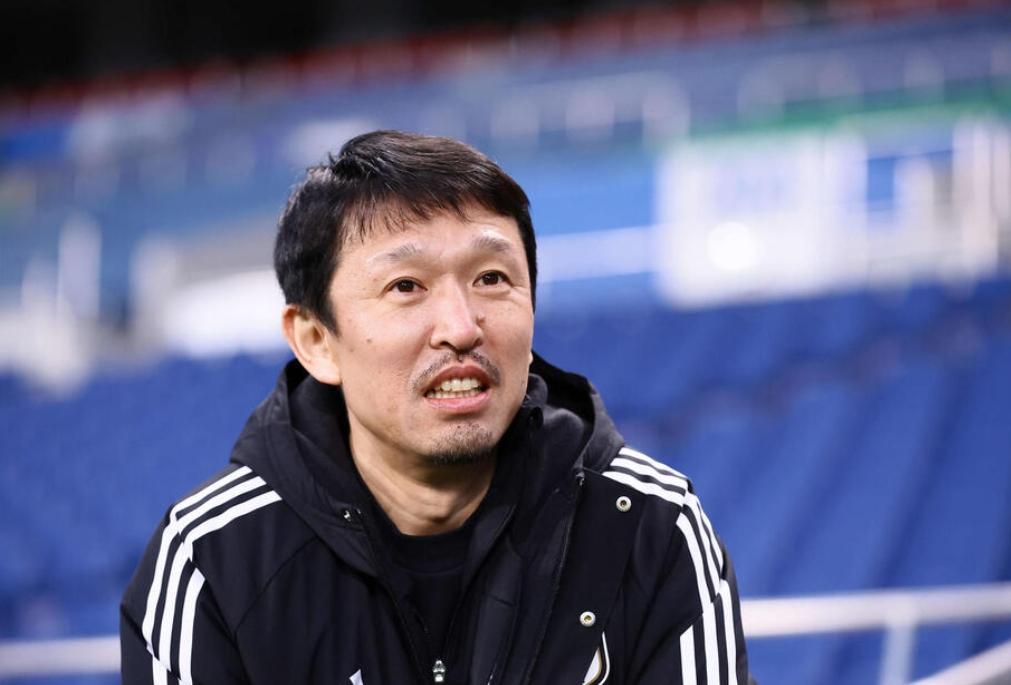
In fact, he arranged everything from negotiating with the club to release people, planning the player's itinerary, arranging air tickets, airport pick-up, and even sharing player training and game data with the club and handing it over to the Mori team for reference.
In recent years, Japanese football has made breakthroughs in all aspects from quantity to quality to resource integration.
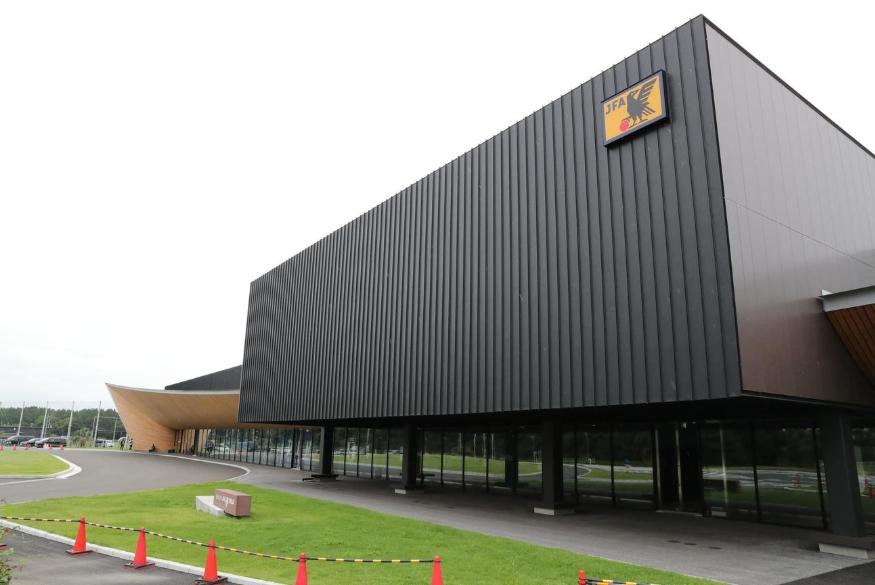

In March, Japan qualified ahead of schedule, giving Japan the longest preparation period for the World Cup in history (448 days). In September, during the round of 18 play-offs, they will play warm-up matches. The Japanese team has planned to travel to the United States to warm up with hosts the United States (ranked 16th in the world) and Mexico (19th) to acclimatize ahead of schedule.
In addition, during the international break in October and November, the Japan Football Association has arranged four warm-up matches in China, and the host venues have been confirmed. The warm-up opponents prefer European powerhouses, just like Germany and Turkey in 2023, to improve the winning rate and confidence of European powerhouses. However, in October and November, Europe is still playing the World Preliminary Tournament, and all teams are full, and the Japanese team can only choose opponents from South America, which ends the World Preliminary Tournament in September, and may also warm up with African powerhouses during the international break in November.
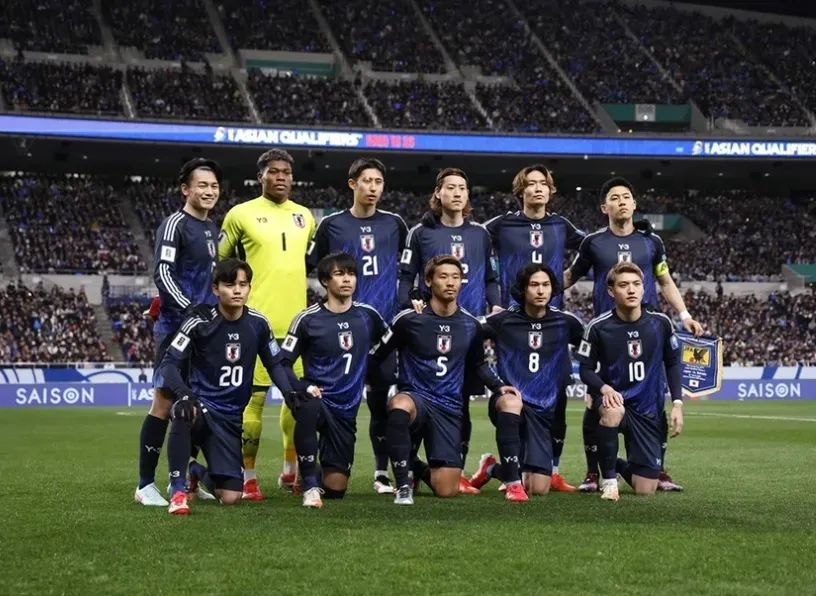
The Japan Football Association is looking to warm up with teams above the top 20 in the world, and the South American semi-finalists Colombia (12th), Uruguay (11th), Brazil (5th) and Argentina (1st) are currently not scheduled to warm up in October and November, which is the main goal of the Japan Football Association. The African qualifiers will end the group stage in October, and Morocco (14th) and Senegal (17th) are likely to qualify directly, which can become the warm-up targets of the Japanese team in November.
At the same time, the Japanese team said that it will not "let the water" in the last three round of 18 matches, and will go all out to win both the qualifiers and the warm-up matches, and they hope to finish in the top nine and strive to become the seeded team for the 2026 World Cup.
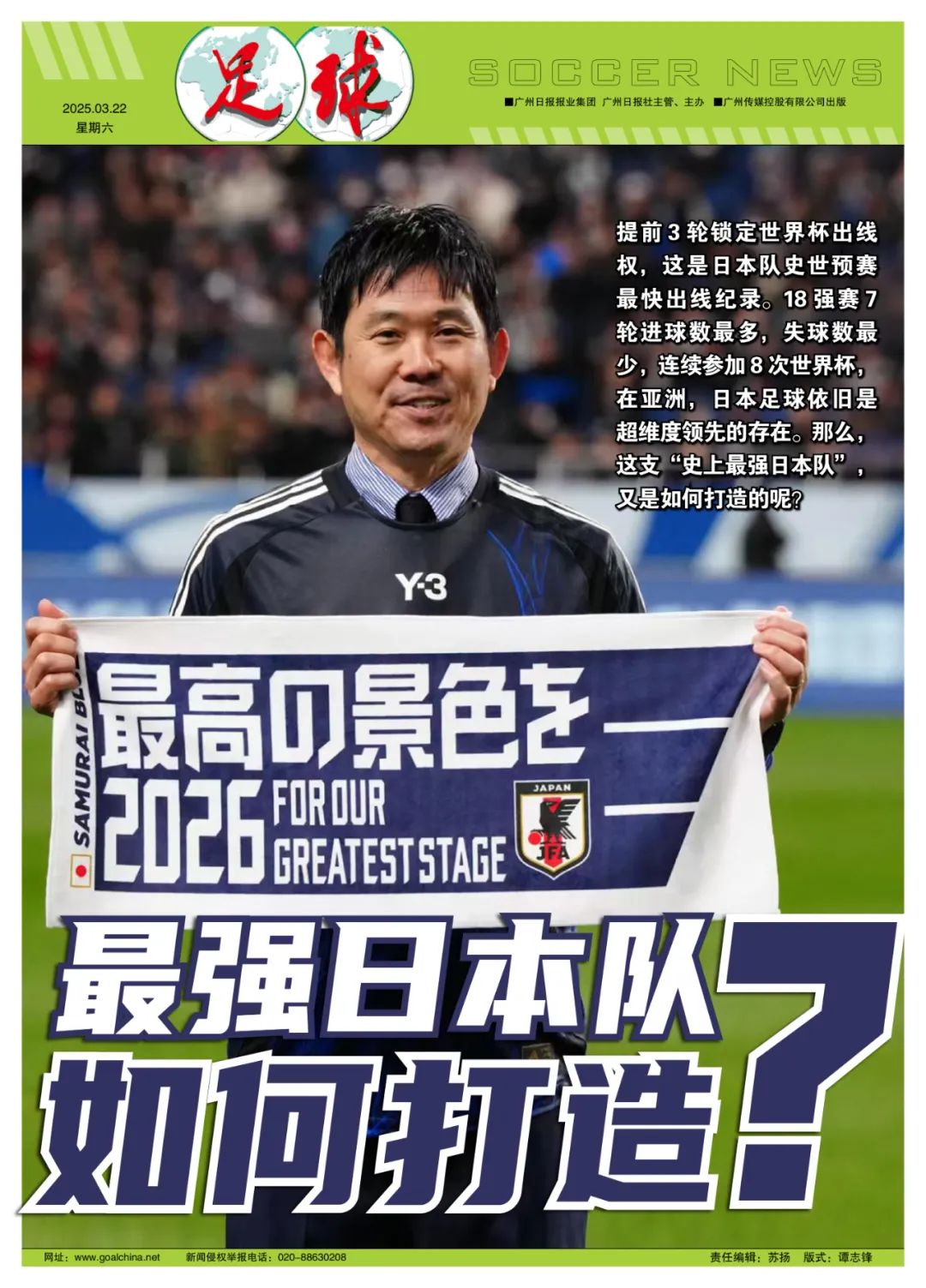


Wonderfulshortvideo
When you use your girlfriends shower 🚿 @Emily Bourne @LUSH


Neymar highlights neymar edit neymar lamine yamal celebration


Arsenal 1-0 chelsea havertz goal


yamal goal yamal instagram yamal dribble barcelona 2-1 albacete yamal highlights yamal edit


casemiro goal casemiro assist casemiro 6 7 celebration


Man city haaland edit haaland goal haaland goal streak haaland drought man city table premier league table


australian open final carlos alcaraz wins australian open alcaraz interview alcaraz press conference djokovic interview djokovic press conference








 Links
Links
 Contact
Contact
 App
App


